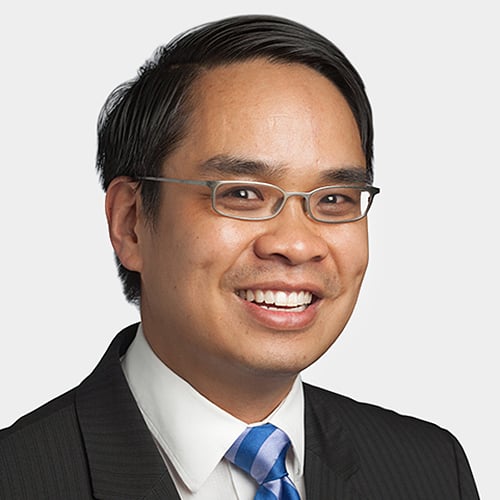CHINA has emerged as a potential supporter for the Airbus A380 superjumbo. The troubled programme has suffered from a lack of new orders for several years, leading to planned production cutbacks to only eight aircraft for 2019.
There has been widespread speculation that Airbus will cancel the entire programme, whose future seems to depend on additional orders being signed with Emirates – and soon. However, during a state visit to China last week, French President Emmanuel Macron raised hopes that Chinese state-owned lessors or carriers will soon come in with some orders. As part of a possible deal, Airbus would carry out some work on interiors and paintjobs to facilities in China.
The A380 has been in service for ten years, but up to now the only orders from China have been for the five aircraft flown by China Southern Airlines. The A380 has a list price of US$437 million, but a sizeable order would typically come with a 50% discount. Thus, a Chinese carrier (or a state-owned leasing entity) could place an order for twenty A380s for only US$4.37 billion.
Given the current tensions in the trade relationship with both France and Germany, there could be a political incentive for Beijing to support the A380 programme. The economics of the aircraft are good when flying full, but anywhere well below capacity is problematic. Nonetheless, China does have high density routes that are well suited to the A380.
Airbus has announced some enhancements to the A380 model in the hope that it can attract new orders:
New winglets and other aerodynamic refinements to the wing are expected to result in up to a 4% reduction in fuel burn. These new winglets – shown for the first time on an A380 at the Paris Air Show in Summer 2017 – would be larger than the wingtip fences used today, but their design ensures the A380’s overall dimensions remain within the 80 metre by 80 metre envelope developed from the start by Airbus for the jetliner’s compatibility with airport infrastructure.
A June 2017 developmental study for an enhanced A380 was unveiled at the start of the Paris Air Show. The A380plus study involves five enhancement elements: aerodynamic improvements for a reduction in fuel burn; an increase in the number of available seats in the upper and lower deck cabins; improvements to onboard systems; changes to the maintenance schedule; and a higher maximum take-off weight.
The so called “cabin enablers” offered for A380s – including redesigned access stairs between decks, sidewall stowage removal, and new seating configurations – could be combined with a maximum take-off weight increased by three tonnes for the A380plus.
This enables up to 80 additional seats to be fitted while maintaining the A380’s current flight range of 8,200 nm. And it would bring total capacity up to 575 passengers. Alternatively, the aircraft’s range could be extended by 330 nautical miles at today’s passenger capacity.
Winning new orders for the A380 has been complicated by the fact that older aircraft are now coming off lease. Late last year, as the initial ten-year lease term expired on the first of five Airbus A380s owned by funds and operated by Singapore Airlines, the airline decided not to exercise its option to extend the lease on the aircraft. The market is anticipating that it will do the same for the four other aircraft owned by German funds, whose initial lease terms will expire in January, March, April and June 2018.
Once the Singapore Airlines aircraft come off their initial lease, the focus will be on Air France. Between 2019 and 2021, four Air France A380s owned by German funds will come to the end of their initial ten-year leases. In February 2017 Air France formally cancelled its two remaining A380 order positions, and ordered additional A350s instead. Air France has ten A380s in its fleet, with five owned by the carrier and five on operating leases with funds.
After that, Emirates aircraft will probably start to be returned to their fund owners, at a rate of roughly four a year between 2022 and 2025. Emirates is the biggest A380 operator.
Malaysian Airlines has also been looking for buyers for the six A380s that it owns, but in the absence of any offers decided to reconfigure them, including with high density seating for pilgrimage traffic to Mecca.
Airbus is offering support in areas such as cabin reconfiguration and repainting. Portuguese widebody wet leasing specialist Hi Fly recently signed up to lease two A380s from German funds on six-year leases, and be flown in a two class 560 seat format (and potentially even 600), while keeping reconfiguration costs down.
Early in 2019 a new customer finally arrives in the form of All Nippon Airways (even though ANA inherited its three order positions when it acquired bankrupt Skymark Airlines). Airbus still hopes that new carriers will come in with orders, and give the programme some much needed forward momentum.
Emirates placed an order for fifty A380s in November 2013, taking its total orders to 140 at that time. Only five more A380s have been ordered by airlines since, three by Japan's All Nippon Airlines (the Skymark planes) and two by Emirates. An additional twenty were ordered by operating lessor Amedeo, but it has not taken any deliveries nor so far found any lessees.
On January 10, Airbus announced senior management changes in China. Eric Chen, previously President of Airbus Commercial Aircraft China, succeeds Laurence Barron as Chairman of Airbus China. Simultaneously, George Xu has been appointed CEO of Airbus China. In his role as country head of Airbus China, Xu is responsible for all Airbus commercial aircraft activities and for leading the company’s helicopter, defence and space businesses in China.
Photo: Airbus.com









